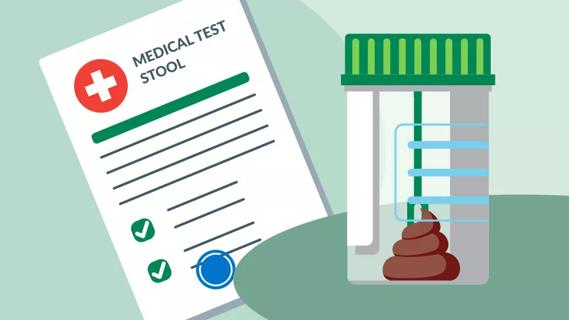It’s a slow-moving process that offers an opportunity for early detection and treatment

Time is on your side when it comes to colorectal cancer forming inside you. The process is estimated to take 10 years, a period that leaves ample opportunity for early discovery and treatment.
Advertisement
Cleveland Clinic is a non-profit academic medical center. Advertising on our site helps support our mission. We do not endorse non-Cleveland Clinic products or services. Policy
But that decade of growing time isn’t a reason to delay or ignore the need for getting a colon and rectal cancer screening. It’s the reason why you should get it done ASAP when the time for testing finally comes.
Colorectal surgeon Rebecca Gunter, MD, explains why.
A colon polyp begins with a gene mutation in one of the countless cells lining your colon. These cells are constantly dividing — and with each division, any mutations can get passed along and added.
This is where it helps to know that cells in your colon grow and divide a lot. How much? Put it this way: You replace the entire lining of your colon once a week.
“As cells with mutations build up on the lining of your colon, they can form a small cluster that appears as a polyp,” explains Dr. Gunter. “A polyp can enlarge as mutated cells start growing faster and living longer.”
Eventually, in all this activity, a polyp mutation may take a turn toward cancer. The good news? Very few polyps become cancerous.
But most polyps have a chance to become cancerous — a reality that is enough of a reason for concern. That’s why any polyp found during a colonoscopy is removed during the procedure.
Thankfully, a polyp’s journey to becoming cancerous is a slow-moving process. As mentioned earlier, it takes about a decade (or 10 years) for a colorectal polyp to evolve from harmless to deadly.
Advertisement
That window of time is why getting a colon cancer screening is so crucial. Polyps can be found before they become life-threatening — but you must go looking for the problem first.
Colon cancer often doesn’t cause noticeable symptoms until it’s more advanced.
“We have the ability to find and remove polyps early to minimize cancer risk,” says Dr. Gunter. “That’s why we can’t emphasize enough the importance of getting a colorectal screening when the time comes.”
The American Cancer Society recommends beginning colorectal cancer screenings at age 45. Earlier testing is encouraged if you have elevated risk factors such as a family history of colorectal cancer.
A colonoscopy is considered the “gold standard” in colorectal cancer screening given that it allows for both the detection and removal of polyps, notes Dr. Gunter. The procedure is an examination of the inside of your large intestine, which includes your colon, rectum and anus.
Now, does anyone look forward to a colonoscopy? Probably not. But the half-hour procedure (as well as prepping ahead of time) isn’t as bad as you might fear. Plus, a colonoscopy only needs to be done once every 10 years if no abnormalities or polyps are found.
Other screening options include at-home stool tests, where you collect your poop and send it off to a lab for analysis every year or so. This test looks for abnormal cells or blood that may indicate cancer.
Stool tests can be effective, but they aren’t as accurate as a colonoscopy and don’t eliminate pesky polyps. And if the test results do hint at a potential problem … well, your next step would be a colonoscopy.
“Talk to your healthcare provider about what option might be best for you,” advises Dr. Gunter. “Just make sure to get screened for colorectal cancer in some way. Doing so could be lifesaving.”
Advertisement
Learn more about our editorial process.
Advertisement

Focus on exercise, eating healthy and getting regular screenings to help lower your risk

Chronic inflammation from flare-ups can damage the lining of your intestinal wall, making your colon more vulnerable to cancer

Colonoscopies and sigmoidoscopies are types of endoscopies, procedures that look at the health of your large intestine

A steady increase in cases in those younger than 50 started decades ago

If you’re at average risk, it’s recommended that you get your first colonoscopy at age 45

At-home screening options can be good detection tools, but a colonoscopy remains the gold standard

Knowing your family history and getting a genetic test can help detect colorectal cancer earlier

Get lots of fiber, cut back on red meat and limit your alcohol intake

If you’re feeling short of breath, sleep can be tough — propping yourself up or sleeping on your side may help

If you fear the unknown or find yourself needing reassurance often, you may identify with this attachment style

If you’re looking to boost your gut health, it’s better to get fiber from whole foods